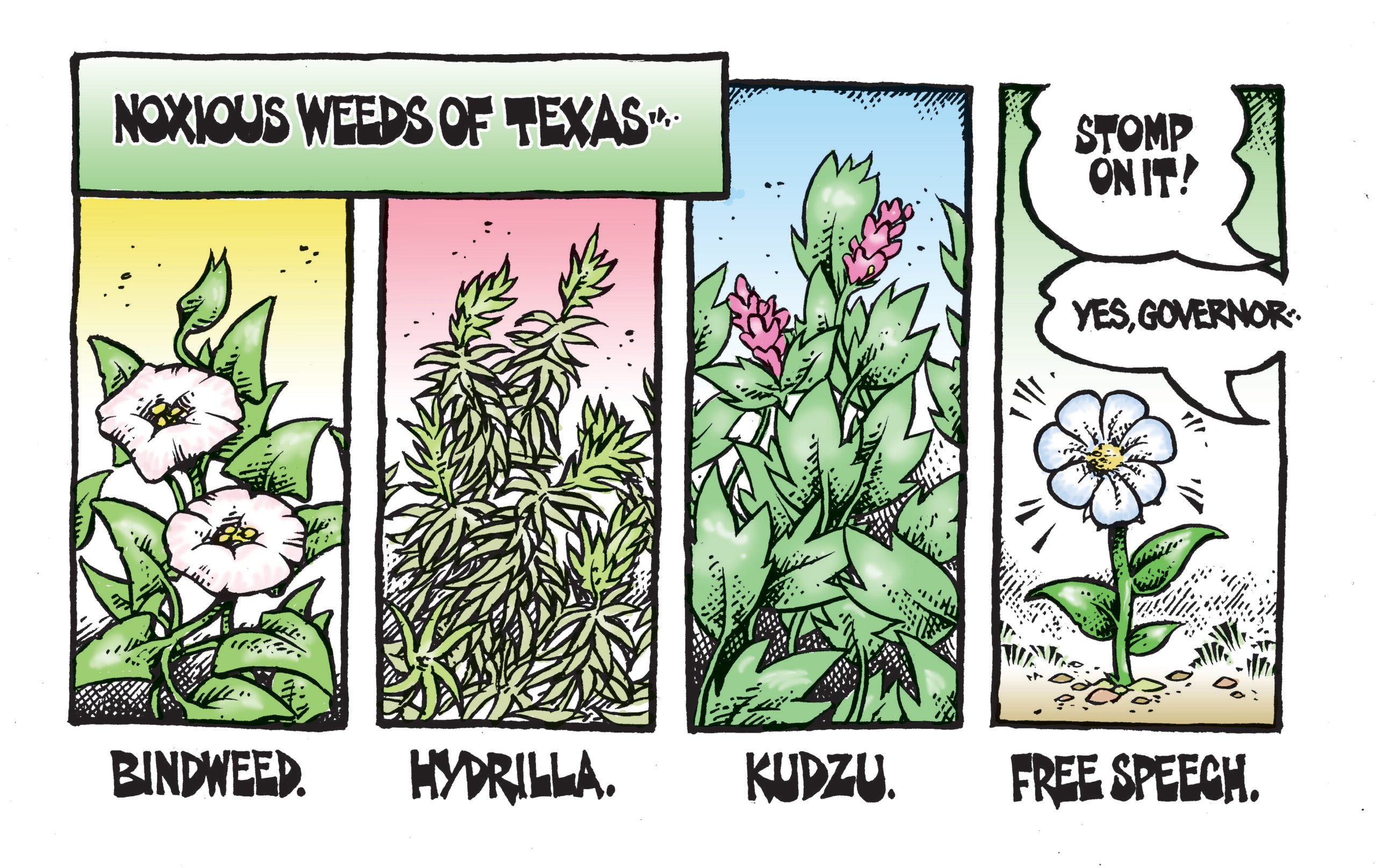ustxtxb_obs_1981_10_23_50_00012-00000_000.pdf
Page 6
their failings are not my concern. This brings me to another point, or another aspect of our literary immaturity i.e., the habit we have of attempting to annex any writer who happens to stray across the state line. Recently I received a prospectus for a bibliography of Texas authors which included such well-known Michael Mewshaw \(Takoma Park, MaryYazoo City, The inclusion of Willie Morris is particularly amusing, since he has spent much of his life proclaiming with almost every waking breath that he is a Mississippian. Michael Mewshaw has probably spent more time in the south of France then he has in Texas. Does a job at the University of Texas automatically make one a Texas writer? If this strange standard were rigorously applied I would have to consider myself a Virginia writer, since I once held a teaching job there. There is no point in wasting space on these claims, which are almost never made by the writers themselves. Attempts to bolster our ranks with latecomers or temporary residents won’t work. Joyce found it convenient to live much of his life in France. Did this make him a French writer? Beckett even learned to write in French, without, however, ceasing to be Irish. I am mainly going to hew to the simple rule that only those born and raised in Texas have the dubious honor of literary citizenship. Even writers who become absorbed in the state, and make good use of some part of it as Beverly Lowry has of Houston, in Daddy’s Girl shouldn’t have to consider themselves Texas writers. Graham Greene has used a great many places well, while remaining thoroughly English. The one case that could be called either way is Donald Barthelme, who has lived enough of his life in Texas to be considered a Texas writer if he wants to. Whether such a designation matters to him I have no way of knowing, but what is obvious is that his fiction has no need of Texas. Barthelme is a brilliant, highrisk modernist, who operates on a hairline, with no greater margin of error than that of a lyric poet. In quality, his work has almost no middle. The stories that are perfect are wonderful; those that are off by a millimeter fail completely. He is the one prose writer I know of to whom an analogy to a trapeze artist seems exact: a miss means death. In the best stories, just watching him not miss provides an intellectual excitement so high that it often brings emotion with it. The perfect stories accumulate slowly, usu ally one or two a yeaf, but Barthelme keeps working; the recently published Sixty Stories, despite many misses, is an impressive achievement. IN THE HASTY SURVEY which follows I am going to concentrate mainly on books published since 1950 it seems to me it has been within this 30year span that Texas literature has clearly failed to realize itself. I would prefer to talk mainly about fiction, but see no way to avoid some discussion of the reminiscential literature which has, from the first, been so popular with Texas writers. One explanation for this may be that lying doesn’t come easy to children of the frontier. It is ironic that Texans, known the world over for being big liars, still can’t lie well enough to write interesting novels, preferring, for the most part, the milder fabrications allowable in reminiscence. As I said in my previous essay, there is not much Texas fiction earlier than 1950 that needs to be looked at, other than that of Miss Porter. James Phillips’ The Inheritors plank; the same can be said for Edward Anderson’s Thieves Like Us. George Sessions Perry’s fiction is now as dead as the magazines he wrote it for. Hold Autumn In Your Hand, his farming novel, seems workaday indeed when compared Two new books on TEXAS POLITICS A VOTER’S GUIDE TO THE 67TH LEGISLATURE A VOTER’S GUIDE includes more than one hundred of the most important votes from the 67th Session. The VOTER’S GUIDE covers a wide variety of legislative issues, and each vote includes a brief history of the issue to help you understand and interpret the importance of the vote. And it lists how each individual member of the Legislature actually voted. No one who follows the Legislature and its actions or who is interested in state government can overlook this important resource. Whether you are a politician, lobbyist, student, public employee or interested citizen, you will want to have a copy of the sixth edition of THE VOTER’S GUIDE. THE 67Th SESSION LEGISLATIVE ACTION REPORT The LEGISLATIVE ACTION REPORT is a complete report on the legislation enacted,during the 1981 Session of the Texas Legislature. It includes listings by subject for all legislation passed, an index to the sections of law affected by the new bills, and complete cross references by author and bill number to help you locate important new laws. Lawyers, accountants, doctors, businessmen and other interested citizens need to know exactly what happened in Austin and how it affects you. The LEGISLATIVE ACTION REPORT puts at your fingertips a wealth of information about what happened and helps you find it quickly and accurately. TEXAS GOVERNMENT NEWSLETIER Now in its ninth year, TEXAS GOVERNMENT NEWS-LETTER publishes a variety of reports on the Texas Legislature. We can provide back issues of the VOTER’S GUIDE from the 63rd-66th Sessions. And we have reprinted the popular 1980 GUIDE TO THE POLICITAL ACTION COMMITTEES IN TEXAS. See the attached card or write for a complete list of publications. _ copies of A VOTER’S GUIDE TO THE 67TH TEXAS LEGISLATURE @ $40 each _.copies of THE 67TH SESSION LEGIS-LATIVE ACTION REPORT @ $35 each _ copies of A GUIDE TO THE POLITICAL ACTION COMMITTEES OF TEXAS @ $25 each One-year subscription to TEXAS GOVERNMENT NEWSLEi LER @ $20 each didate’s information packet Ship to: Sub Total 5% Sales Tax TOTAL Enclosed Texas Government Newsletter P.O. Box 9701 Austin, Texas 78766 12 OCTOBER 23, 1981


